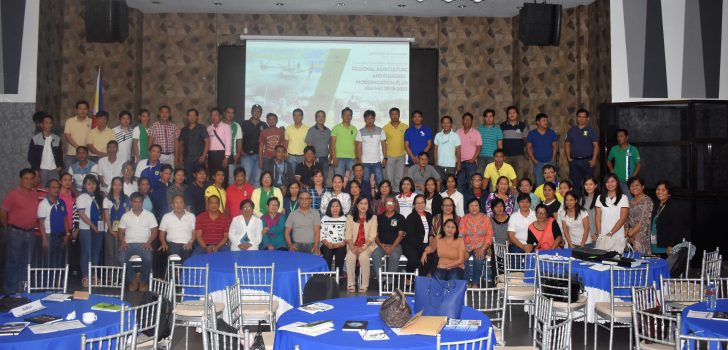
RPCO 02 I-PLAN lays out strategies for strengthening AFMP
In a bid to ramp up efficiency for countryside rural development, the Regional Project Coordination Office 02 (RPCO) through the I-PLAN Component has successfully conducted a series of consultation-workshops in preparation for the formulation of the updated Agriculture and Fisheries Modernization Plan (AFMP) 2018-2023 covering the five provinces of the region.
The consultation-workshops included the training on vulnerability and suitability assessment (VSA), geomapping technology at the municipal level, workshop for updating the regional priority commodities, orientation of various municipal local government units on the AFMP templates, and the conduct of consultation on the expanded regional management committee.
A statement from the I-PLAN component pointed out that “these activities are expected to carve out strategic programs and projects of the Department in increasing production efficiency.”
This is based on a judgment that agriculture modernization in the country already has a solid foundation, which came from its significant progress in agriculture of the past years.
The inclusion of different planning tools such as the VSA and value chain analysis (VCA) trainings, along with the provincial commodity investment plan (PCIP), directs a national strategy to guide investments for actual fund allocation across operating units and functions.
“The acquired knowledge from this series of consultations and workshops is vital especially in crafting the Regional Agriculture and Fisheries Modernization Plan (RAFMP) from the PCIP which seeks to develop the priority commodities based on the results of the VCA and VSA.”
The RPCO team, for one, is giving its support to the formulation of the RAFMP that has gone through various consultations using various planning tools. This formulated regional plan can significantly enhance and accelerate the flow of systematic interventions across a complex network of agriculture stakeholders throughout the value chain.
The conduct of a series of consultations and workshops ensures the alignment of the agriculture programs with other government plans and avoids the implementation of individual programs and projects in isolation.
The aim is to make the regional agriculture sector compliant with the national government’s strategy of strengthening and modernizing the agriculture and fisheries sectors towards reducing poverty incidence in the country side.
Modernization is the only way forward for agriculture, and targeted efforts should be made to promote institutional and structural reforms and put in place a harmonized planning and budgeting strategy centered on increasing investments for production and technological advances.
The series of consultations and workshops are necessary reforms for the expansion and strengthening of an agriculture enterprise that has adopted various planning tools. It constitutes part of the region’s efforts made in recent years to step up its agricultural modernization. (Jaycee M. Capalungan, RPCO2 InfoACE Unit)
